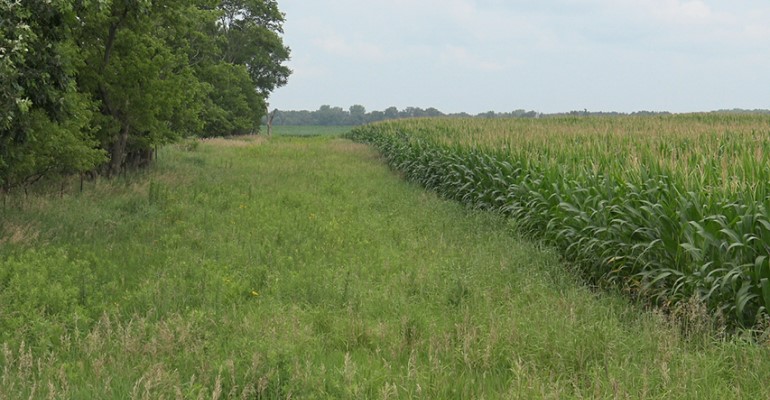Relationship between ACWA and its members sets precedent for how ag retailers approach conservation practices with farmer customers.
December 2, 2019

Fourteen agricultural retailers doing business in Iowa’s Raccoon River Watershed are strong competitors, but two decades ago, they rallied around a shared goal of enhancing water quality. Today, their voluntary and coordinated efforts are celebrated as Agriculture’s Clean Water Alliance (ACWA) celebrates its 20th anniversary.
“Improving water quality is a uniting goal, even for businesses that are competitors,” ACWA chairman Harry Ahrenholtz said.
“After 20 years, ACWA members remain committed to their mission of helping farmers improve their agronomic performance while supporting environmental improvement through voluntary efforts,” he added. “That’s truly something worth celebrating.”
The proof can be found in the organization’s just-published 2018 annual report, which highlights the most recent data of ACWA activities that help improve the health of the Raccoon and Des Moines rivers and their tributaries.
ACWA collected 625 water samples from 65 tributaries in 2018 and collected 223 samples from 23 river sites. Combined with data collected from previous years, ACWA continues to amass one of the most comprehensive databases of nitrate level records for the Raccoon and Des Moines rivers (stream monitoring data can be found on the ACWA website).
Ahrenholtz said water monitoring remains an important component of the alliance’s annual work plans.
“It’s been instrumental in prioritizing the geographic focus areas for project efforts and initiatives,” he said. “Data collection is the first step in making progress and necessary in determining impact.”
ACWA is also working with farmers to monitor water from individual field tile lines and edge-of-field structures. In 2018, ACWA sponsored analysis of more than 1,000 samples from 150 tile outlets and 29 sites with a conservation practice installed such as bioreactors, saturated buffers and farm ponds.
“This has been valuable as an educational tool for the farmer and has spawned new adoption of conservation practices at the field level,” Ahrenholtz said.
To strengthen the connection among conservation groups, agricultural retailer members and their customers, ACWA is currently managing its second Water Quality Initiative (WQI) project: The North Raccoon Farm to River Partnership.
“With the Water Quality Initiative grants, ACWA can leverage our dollars and efforts to scale up conservation practices on the landscape,” ACWA executive director Roger Wolf said. “Grants such as this one involve our members partnering with farmers and landowners as well as watershed groups, soil and water conservation districts and more.”
ACWA watershed coordinator Chance McDonald works directly with ACWA members Landus Cooperative, NEW Co-op and Nutrien Ag Solutions for the Farm to River Partnership. McDonald works to achieve the project’s goals of increased cover crop usage and to install bioreactors, saturated buffers and wetlands on agricultural lands in Sac, Calhoun, Carroll and Greene counties.
Wolf said the relationship between McDonald and ACWA members "is setting a precedent for how ag retailers approach conservation practices with farmer customers for the ultimate goal of nutrient reduction in Iowa’s waters.”
Members of ACWA also annually reaffirm a code of practice for nitrogen fertilization. First adopted in 2001, it stipulates that fall anhydrous applications without a nitrification inhibitor must be delayed until soil temperatures are 50°F and trending lower.
With an eye to the future, ACWA is expanding partnerships to include municipalities and urban entities collaborating for cleaner water.
“Organizations including the Greater Des Moines Partnership, Capital Crossroads, Polk Soil & Water Conservation District and others are working with ACWA to create solid upstream/downstream partnerships for clean water,” Wolf said. “They are creating awareness and finding solutions for nutrient reduction in the rivers that flow through Iowa’s capital city.”
Learn more about ACWA accomplishments in the ACWA 2018 annual report and the 20-year timeline on the ACWA website.
Source: Agriculture’s Clean Water Alliance.
You May Also Like

.png?width=300&auto=webp&quality=80&disable=upscale)

